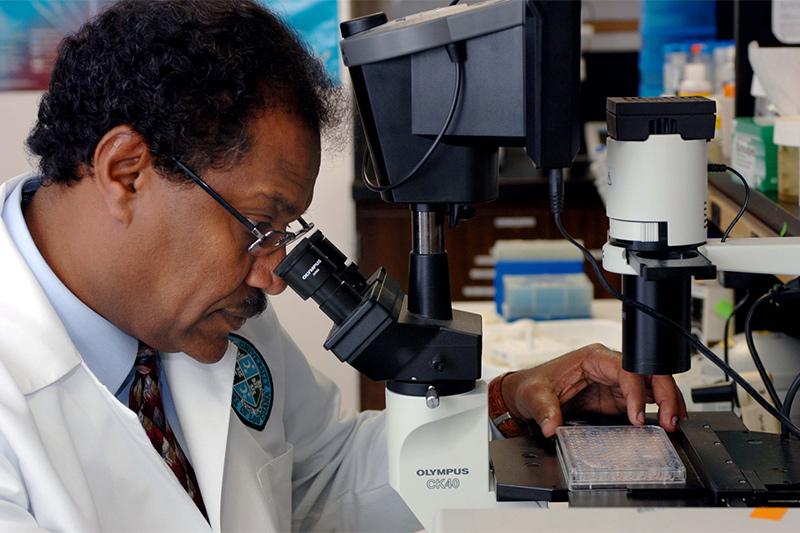Repurposed drugs may halt the spread of cancer cells
For cancer cells to spread to other places in the body—or metastasize—they need to communicate with one another. One way they do this is through chemical messages delivered in exosomes, the molecules that carry information from cell to cell.
Currently there are no known drugs that selectively target and inhibit the production and release of exosomes by tumor cells.
This spring, Asim Abdel-Mageed, DVM, PhD, Zimmerman Professor of Cancer Research at Tulane University School of Medicine, and his colleagues published their research that examined whether drugs already approved to treat other diseases or conditions could be effective in blocking the activity of exosomes. Their work was published in Scientific Reports.
In partnership with investigators at the National Center for Advancing Translational Science and with the support of a $4.2 million NIH grant awarded in 2014, Abdel-Mageed and his collaborators investigated 4,580 known pharmacologically active compounds and FDA-approved drugs using a rapid, high-volume, robotic screening technique. Twenty-two — including antibiotics, antifungal medicines and anti-inflammatory agents — were effective in preventing advanced prostate tumor cells from releasing exosomes or in blocking their production.
"Exosomes are routinely biosynthesized and released by cancer cells, including prostate cancer, and are implicated in cancer progression," Abdel-Mageed said.
"Because drug discovery from concept to market takes an average time of 12 years, our identified drugs could be repurposed for the treatment of advanced prostate cancer within a relatively short period of time.” In fact, combining the repurposed drugs with conventional therapy was promising in reducing tumor burden in a pre-clinical animal model of prostate cancer. Of course, much work remains to determine which individual drugs or combinations might be useful in patients.
Further research into this approach could also be useful in treating other advanced cancers, as well as diseases such as Alzheimer’s.
Abdel-Mageed worked with Tulane collaborators Debasis Mondal, PhD, and Raju Thomas, MD, whom he said were instrumental not only in the original grant application, but also in data and outcomes analysis.


